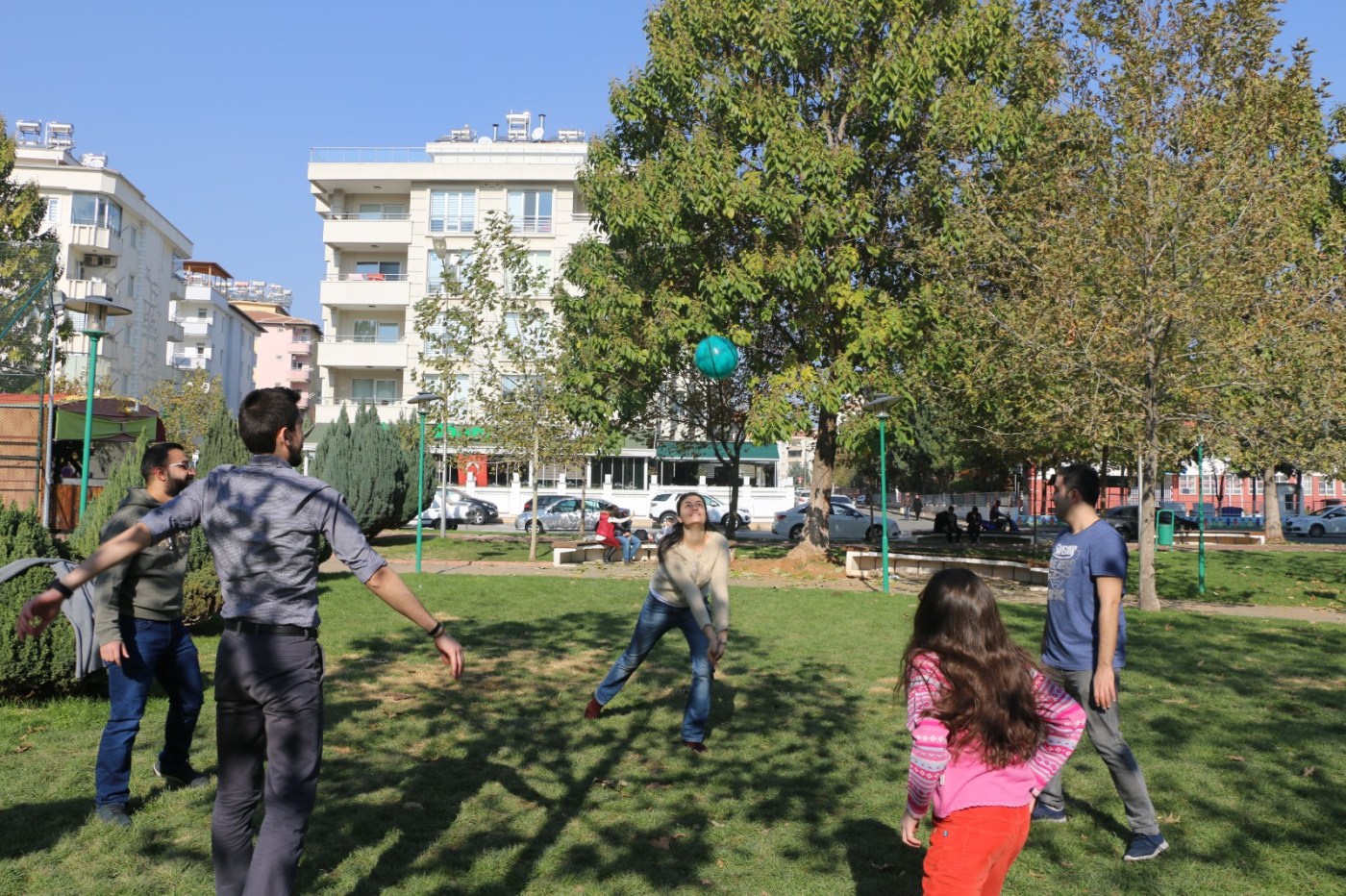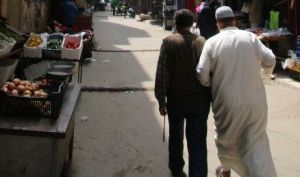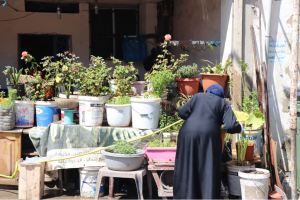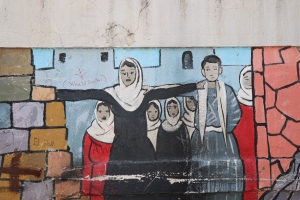‘Teaching local hosts the experience of war and forced displacement would help to publicly challenge hate speech and inform compassion,’ argue Southern Responses to Displacement’s researchers, Dr Estella Carpi, Amal Shaiah Istanbouli and Sara Al Helali. Drawing on research conducted during Southern Responses to Displacement’s fieldwork in Turkey, this blog notes the lack of a systematic approach to educating refugee host communities, despite evidence to suggest that it is an effective tool to reduce anti-refugee sentiment and increase understanding and empathy towards the experiences of refugees. This post presents key evidence contributing to our aims of ‘examining refugees’ experiences, perceptions and conceptualisations of Southern-led responses’ and of ‘tracing the implications of Southern-led initiatives for humanitarian theory and practice.’
If you enjoy reading this piece you can access the recommended reading list at the end of this post.
This piece was originally published by Open Democracy here.
Educating the host: It’s not just refugees who need ‘integration’ programmes.
by Dr Estella Carpi, Amal Shaiah Istanbouli and Sara Al Helali
All over the world ‘inclusion’ and ‘integration’ programmes for refugees affected by displacement proliferate. But they often remain ineffective in catalysing social cohesion. This is unsurprising when local hosts who receive refugees are not equally instructed and informed about including and integrating migrants.
In fact, inclusion and integration programmes – far from being radical in any way – are not merely ineffective, they are also politically conservative. This is because they fail to capture human mobility as an everlasting process that cuts across all social groups.
In the contemporary history of forced migration, most development and humanitarian programmes have revolved around assistance to refugees and asylum-seekers, emphasising their needs and rights. Civil society associations and activist groups, who, in general, overtly engage in political mobilisation, often end up adopting a similar strategy, focusing only on one side of the coin in advocacy campaigns and assistance programmes.
That being said, informal small-scale information sessions on forced migration and integration activities that require the involvement of local hosts can, at times, be found in cities and towns, but are not incorporated in official education programmes from early years. This lack of a systematic approach to ‘educating the host’ means information is not delivered cogently. Teaching empathy to those social groups who feel aloof from societal issues such as forced migration and from all of what refugee reception involves should be promoted.
Based on data we collected in Lebanon and Turkey over the past four years, as part of the Southern-led Responses to Displacement from Syria project led by Professor Elena Fiddian-Qasmiyeh at University College London, we found that many of the refugees from Syria we interviewed highlighted the need for local ‘hosts’ to learn the experience of war and forced displacement in order to understand the reasons behind their arrival and to learn how to accept and support refugee newcomers within their societies.
“In the media, the government and local municipalities should work on delivering messages that encourage local people to support Syrians or, at least, prevent them from engaging in different forms of racism. Such messages should particularly target local students,” a Syrian refugee woman we spoke to in Hatay, Turkey, explained.
Indeed, the suicide of a nine-year-old refugee student in Turkey in October 2019 as a result of extreme racism at school was reported, while local and national media were fueling waves of xenophobia across Turkey since the beginning of the Syrian humanitarian crisis.
Likewise, a large number of refugees from Syria pointed to the misleading belief that they merely constitute a burden on ‘host economies’.
A Syrian refugee man in Gaziantep, a city in Turkey, suggested that “the governments of Arab countries should contribute to educating their people so that refugees are accepted on their lands and integration is facilitated: governments must clarify that refugees do not receive aid at the expense of the host economy”.
Another contended that his cash vouchers are not a gift from host governments, and that conveying this message publicly would ease local tensions. Educating the hosts is often mentioned as an effective tool to reduce anti-refugee resentment and stimulate informed empathy within local society.
A Lebanese student in a northern Lebanese village, confirmed this: “I don’t know much about what happened in Syria in 2011. I only see lots of Syrians here. How will I learn this history if they don’t teach these things at school?” they asked.
In our interviews and experiences in Turkey and Lebanon, international NGOs were especially mentioned as holding a potentially influential role in educating the locals on what it means to actively host refugees, since some large humanitarian and development actors have the capacity to pressure the international media and, sometimes, governments.
The considerations above, coming from refugees, raise the fundamental question of what sort of venues would be safe and suitable for the endeavour of educating the host. In most cities, refugee reception is highly politicised and regularly used as a way for local power holders to create constituencies.
One question is whether human empathy can really be ‘taught’. However, even though the response to such a question is complex, accepting the status quo is not an option.
For instance, the presence of official education programmes on forced migration for the local hosts would help to publicly challenge hate speech and inform people’s compassion with legal and historical frameworks on refugee reception.
Informal activities and events are often organised in cities that receive large numbers of forced migrants, both in the Global North and the Global South.
In Europe, some cities and towns host municipality-led events or initiatives run by collectives aimed at promoting integration through cultural activities or inter-religious dialogue.
In cities like Beirut and Istanbul, film screenings and roundtable discussions on Syria have been organised widely by local activists, with the purpose of sensitising the civil society. Yet, these initiatives quite often do not manage to become visible to all social groups and, importantly, are still missing in the official discourse on forced migration.
Instead, the responsibility and capacity to integrate and be included are exclusively ascribed to the refugees themselves. Paradoxically, the members of the societies that receive refugees are officially defined as ‘hosts’ without actively hosting.
This is not to discard the importance of ‘integration’ and ‘inclusion’ in contemporary societies, but rather to advocate for the healthy coexistence and mutual knowledge between the long-standing and new members of those societies.
The international community must shift the ‘capacity to integrate’ formula from the refugees to the local ‘hosts’, and acknowledge the need for a real plan with long-term, mandatory educational programmes.
Some might see this call for educating the host as an ideological and, thus, questionable move, but the truth is that whether we want it or not, people will keep moving, and the sustainability of everyone’s welfare cannot be but a common affair.
**
*This research has been conducted in the framework of the project “Analysing South-South Humanitarian Responses to Displacement from Syria: Views from Lebanon, Jordan and Turkey,” funded by the European Research Council under the Horizon 2020 Research and Innovation agreement no. 715582.
If you enjoyed this piece you can access the recommended reading below:
Cantor, D.J. (2021) Cooperation on refugees in Latin America and the Caribbean – The ‘Cartagena process’ and South–South approaches
Asai, N. (2019) Soka Gakkai International – Faith-Based Humanitarian Action During Large Scale Disaster
Carpi, E. (2019) Local Faith Actors in Disaster Response and Risk Reduction – ALNAP Webinar
Carpi E. (2018) ‘Southern’ and ‘Northern’ assistance provision beyond the grand narratives: Views from Lebanese and Syrian providers in Lebanon
Carpi, E. (2018) Does Faith-Based Aid Provision Always Localise Aid?
Fiddian-Qasmiyeh, E. (2019) Looking Forward: Disasters at 40
Fiddian-Qasmiyeh, E. (2019) Exploring refugees’ conceptualisations of Southern-led humanitarianism
Fiddian-Qasmiyeh, E. (2019) Histories and spaces of Southern-led responses to displacement
Fiddian-Qasmiyeh, E. (2018) Faith-Based Humanitarianism
Fiddian-Qasmiyeh, E. (2017) Refugee-Refugee Humanitarianism
Olliff, L. (2019) Refugee diaspora humanitarianism and the value of North/South distinctions in research on responses to forced displacement.
Omata, N. (2019) South-South Cooperation in International Organizations: Its Conceptualization and Implementation within UNDP and UNHCR
Ozturk, M. (2019) Municipal-level responses to Syrian refugees in Turkey: The case of Bursa
Wagner, A. C. (2019) “There are no missionaries here!” – How a local church took the lead in the refugee response in northern Jordan
Featured image: Syrian and Turkish community members play in the park, Gaziantep, Turkey. © Muhannad Saab, 2016



